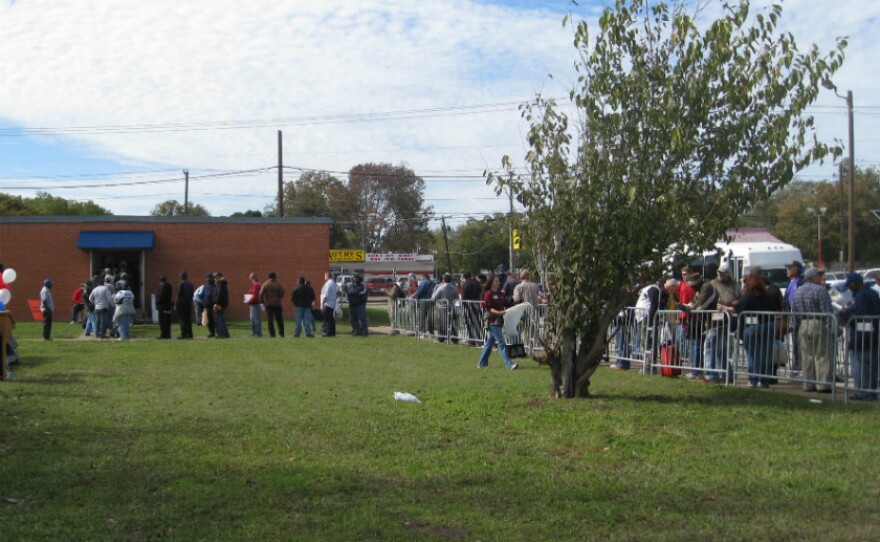Officials say one in nine of the nation’s homeless are veterans. They’re among those we honor today on Veterans Day. Some Dallas homeless vets talk about their life and the importance of this day.
Across North Texas, about a thousand veterans bed down on any given night in one shelter or another. Some, like The Bridge or the Union Gospel Mission, have a bathroom and a bed. Others don’t.
“We go from place to place. Sleep in the truck a lot of the times.” Says Delia Rimes. That’s where she and her husband have been living lately.
Rimes served at Keesler Air Force Base, in Mississippi. It’s hard to find a job she says, because of diabetes, a thyroid condition, and disabilities that call for 37 different drugs a day. She wants a job, but can’t find one.
Veterans Day improves things, because Rimes loves the military. But what she likes even more is the annual stand down, like the one near Dallas’ VA Hospital last Friday. Stand-down means coming off active duty. Rimes picked up some clothes and shoes at the event that also provided food and medical check-ups. But the day was special for another reason.
“It’s something that brings the vets together,” says Rimes, her voice quiet, A tear starts to drop from her left eye. “I don’t feel safe out there. I come here and I feel safe. I don’t understand that. I don't know why. But it’s brothers and sisters. Even though we may not know each other from anywhere.”
Jerry Ivy, a 30-year veteran of the 108th Bravo Infantry, thinks about people like Rimes on this holiday – about their service and their needs. He says non-military don’t always ‘get it.’
“They don’t’ understand,” says Ivy, “if you snap or you have some kind of disorder. People don’t understand that if they’re not a veteran.”
Ivy knows about being homeless too, because he is. That’s partly because of a decades-old cocaine habit. He was at Friday’s stand down and says it put him back in touch with life and his dreams.
“When you lose all dignity about yourself, it makes you feel like someone is there to help you because sometimes you lose all hope,” Ivy says. “And so it helped me put my hope back in to doing the things to the point where I can be successful in life, because I gave up, know what I’m saying?”
28-year Air Force veteran Rich Lindsey understands. That’s why he volunteers to help homeless vets.
“I don’t’ think there should be such a thing as a homeless veteran. Shouldn’t be in the same sentence,” he says, as he taps his metal cane on the asphalt.
The retired Chief Master Sergeant has helped people like Jerry Ivy because it’s his passion.
“A lot of them have psychological issues they don’t even know they have sometimes,” explains Lindsey. “It’s difficult to find employment. They get disgusted, don’t’ know what else to do and some of them just kind of give up.”
Lindsey says just because the stand down is over, services for vets in need don’t stop. There’s stillhelp for those needing shelter, a job or training, a lawyer or a coat and a duffel bag.







